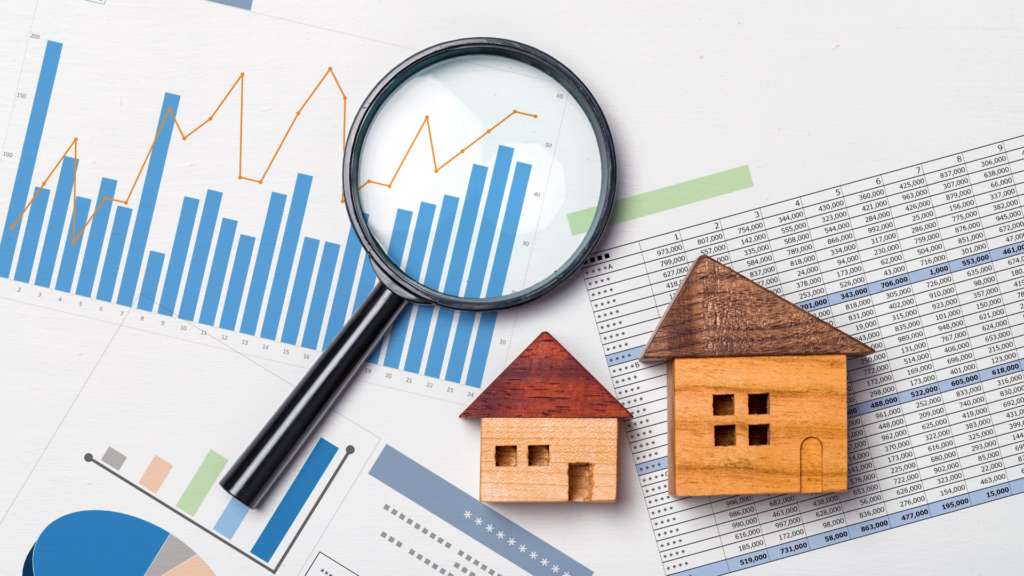Top Trends in ESG Reporting for the Real Estate Industry

ESG reporting is crucial for the real estate industry. It involves disclosing environmental, social, and governance factors, which can impact financial performance, regulatory compliance, and investor relations. This article will explore the importance of ESG reporting for the real estate industry and key metrics, frameworks, technological advancements, and best practices in real estate.
Table of Contents
Key takeaways
ESG reporting is vital for real estate companies, enhancing financial performance and attracting investors while ensuring regulatory compliance.
Key metrics such as energy consumption, greenhouse gas emissions management, and green building certifications drive sustainability and align with global climate goals.
Leveraging technology for data management and stakeholder engagement is crucial for effective ESG reporting and fostering collaborative sustainability efforts.
The importance of ESG reporting in Real Estate

ESG reporting is not just a regulatory requirement; it’s a strategic imperative for real estate companies. The integration of ESG priorities has a strong correlation with financial success, enhancing long-term value attributed to real estate assets. Companies that prioritize ESG can attract a wider pool of investors and lower their cost of capital, ultimately boosting financial performance over the long term.
The shift towards sustainable investments, particularly post-COVID-19, has increased the demand for ESG compliance. The increased focus on sustainable investing drives real estate companies to adopt comprehensive ESG reporting practices. This shift is driven by the sector’s significant carbon footprint and the regulatory demands imposed by bodies like the Sustainable Finance Disclosure Regulation (SFDR).
Moreover, accurate ESG data ensures regulatory compliance and opens new investment opportunities. Emphasizing ESG performance aligns with the focus of millennial investors who seek to create a positive long-term impact. Robust ESG reporting provides transparency to stakeholders and drives sustainable growth.
Key ESG metrics for Real Estate companies

Effective ESG reporting hinges on identifying and managing key metrics that reflect the environmental, social, and governance aspects of real estate operations. Buildings account for 34% of global energy demand, making energy consumption a critical metric for the industry. Monitoring and optimizing energy use can significantly reduce operational costs and carbon footprint.
Greenhouse gas emissions management is another pivotal metric, given that buildings contribute to 37% of global carbon emissions. Utilizing frameworks like the Science-Based Targets Initiative and the GHG Protocol Corporate Standard helps real estate companies set and achieve emissions reduction targets. These efforts not only enhance ESG performance but also align with global climate goals.
Furthermore, green building certifications such as LEED and BREEAM are becoming essential for new developments. These certifications ensure that buildings meet high standards of sustainability, covering aspects like energy efficiency, water usage, and indoor air quality. By focusing on these key ESG metrics, real estate companies can drive meaningful improvements in their sustainability performance.
Navigating ESG reporting frameworks

Navigating the myriad of ESG reporting frameworks can be daunting, but it’s crucial for ensuring consistent and transparent reporting. Real estate firms should align their reporting with established frameworks such as the EU Taxonomy, GRI Standards, and TCFD to enhance ESG compliance. These frameworks provide a structured approach to addressing environmental, social, and governance factors.
Mandatory ESG reporting requirements, such as the new ESRS and CSRD, are becoming standard in many regions, facilitating stakeholders’ understanding of climate-related risks. These regulations mandate that real estate companies disclose relevant ESG data and climate-related financial disclosures, promoting transparency and accountability.
GRESB, a leading ESG benchmark for real assets, works alongside global initiatives like SFDR and collaborates with frameworks like GRI and SASB to provide sector-specific guidelines. By adopting these reporting frameworks, real estate companies can consistently address ESG issues, ensuring stakeholder transparency and trust.

Leveraging technology for effective ESG data management
In the digital age, technology plays a pivotal role in enhancing ESG reporting for real estate companies. Advanced technology platforms can integrate sustainability data with property and investment management, streamlining ESG data management and reporting processes. Smart building systems and data analytics are crucial for improving sustainability in real estate operations.
Automation can significantly reduce manual processes and achieve substantial energy savings across a real estate portfolio. Automating energy management systems can proactively identify HVAC system faults, enhancing operational efficiency and sustainability. Utility expense management solutions can also help validate and process utility bills, ensuring accurate data capture for ESG compliance.
Advanced algorithms and analysis tools enable data-driven decision-making, optimizing energy efficiency and sustainability initiatives. By leveraging technology, real estate companies can improve their ESG performance and ensure comprehensive ESG reporting.
Aligning ESG goals with sustainable development

Aligning ESG goals with broader sustainable development objectives is essential for driving long-term impact. The Science-Based Targets Initiative (SBTi) guides setting emissions reduction targets aligned with climate science. Real estate companies can use these targets to develop customized sustainability roadmaps, ensuring that their ESG efforts are coherent and impactful.
Water usage and pollution control are critical areas for real estate companies, given the increasing consumption rates and pollution costs. Effective waste management practices, including tracking material flows and implementing circular economy frameworks, further enhance sustainability performance.
In the UK, real estate assets account for nearly 40% of national greenhouse gas emissions, highlighting the need for effective decarbonization strategies. Incorporating nature-based solutions, such as green roofs and biodiversity enhancements, can restore local ecosystems and improve the environmental impact of real estate developments.
There is also a growing focus on climate resilience strategies, with stakeholders emphasizing the increasingly critical importance of properties’ ability to withstand climate impacts. Post-occupancy evaluations and human-oriented designs are crucial for promoting occupant well-being and enhancing the social impact of real estate projects.
Enhancing corporate governance through ESG
ESG reporting significantly enhances corporate governance by promoting transparency and accountability. Comprehensive ESG reporting allows stakeholders, including investors and regulators, to assess a company’s progress toward its sustainability goals. This transparency fosters stakeholder confidence and builds credibility, essential for attracting responsible investors.
Adopting transparent governance and ethical business practices is becoming increasingly important for real estate firms. These practices not only improve risk management strategies but also align with good governance principles, mitigating legal, regulatory, and financial risks.
Strengthening corporate governance through ESG also involves a focus on social responsibility and ethical practices, which build investor and stakeholder trust. Aligning governance practices with ESG principles ensures long-term sustainability and success for real estate companies.
Case Studies: Successful ESG implementation in Real Estate
Real-world examples of successful ESG implementation provide valuable insights and inspiration. Invesco Real Estate has committed to ESG+R principles, focusing on enhancing building performance and promoting best practices to adapt to market changes. Their initiatives demonstrate the tangible benefits of integrating ESG into real estate operations.
The 321 Exhibition Street in Melbourne is a prime example of how retrofitting can achieve net zero status. This building received top ratings for energy, water, and indoor environment performance, showcasing the potential for sustainable development.
Another noteworthy example is the Spinelli and Flairwood mixed-use building in Mannheim, designed with sustainable materials and technologies. This project earned the highest German energy efficiency certification, highlighting the importance of green building certifications in driving sustainability.
ESG reporting benchmarks enable companies to compare performance with industry peers, fostering continuous improvement.
Overcoming challenges in ESG reporting
ESG reporting in the real estate sector brings several challenges despite its benefits. One major hurdle is the limited availability of reliable data, which hampers effective ESG impact reporting. Additionally, inconsistent reporting standards across the industry lead to measurement and reporting challenges for real estate investors.
Data integration from various sources poses significant challenges, making it difficult to manage ESG information effectively. Real estate stakeholders also face pressure to comply with stringent regulatory requirements related to ESG, further complicating the data reporting process.
Climate risk assessment is becoming an important metric for real estate firms, helping them identify vulnerabilities related to climate change. Tools like the Carbon Risk Real Estate Monitor (CRREM) evaluate the climate risk of properties, identifying those that may become financially unviable due to climate impacts. Overcoming these challenges is crucial for comprehensive ESG reporting.

The role of stakeholders in ESG efforts
Stakeholders play a vital role in driving ESG efforts within the real estate industry. ESG reporting facilitates stakeholder engagement, promoting dialogue and collaborative sustainability efforts. GRESB’s stakeholder engagement framework, based on the AA1000 AccountAbility Standard, emphasizes inclusivity and responsiveness, ensuring that all relevant parties are involved in the ESG process.
Various stakeholder groups, including institutional investors, real estate entities, industry associations, and governmental organizations, contribute to the ESG landscape. An ‘interest-influence’ grid is used by GRESB to determine the levels of engagement required for different stakeholder groups, ensuring that their interests are adequately addressed.
Fostering strong stakeholder relationships enhances ESG performance and drives meaningful change within the industry. Engaging stakeholders is not just about compliance; it’s about building a collaborative approach to sustainability that benefits all parties involved.
Key takeaways and partnering with us!
As we navigate the evolving landscape of ESG reporting in the real estate industry, several key takeaways emerge. Properties designed with climate resilience are better positioned to withstand climate change impacts, ensuring long-term value and sustainability. Increased focus on ESG reporting is driven by the need for real estate firms to prepare for these impacts and align with global sustainability goals.
Collaborating with us offers the expertise and tools needed to excel in your ESG journey. From comprehensive data management solutions to strategic guidance on aligning ESG goals with sustainable development, we are here to support your efforts. Together, we can drive positive change and create a more sustainable future for the real estate industry.
The real estate industry faces the challenge of adapting to increasing demands related to sustainable development and environmental responsibility. Plan Be Eco offers specific solutions to help companies meet these expectations, such as comprehensive carbon footprint calculation for both the company and its products. In addition, the company provides full ESG reporting, which has become a key factor for investors and clients seeking transparency in environmental responsibility. With these services, real estate businesses can not only reduce their environmental impact but also enhance their competitiveness and attractiveness to tenants and investors.
Summary
ESG reporting is increasingly critical for the real estate industry, driven by regulatory demands, investor focus, and the need for sustainable practices. By understanding key ESG metrics, navigating reporting frameworks, leveraging technology, and aligning with sustainable development, real estate companies can enhance their ESG performance and drive long-term value.
The journey towards effective ESG reporting involves overcoming challenges and fostering strong stakeholder engagement. With the right strategies and partnerships, real estate companies can lead the way in sustainable investing and corporate responsibility. Let’s embrace ESG principles and work towards a more resilient and sustainable future for the real estate sector.
Frequently Asked Questions
Why is ESG reporting important for real estate companies?
ESG reporting is essential for real estate companies because it not only enhances long-term value and attracts investors but also ensures compliance with regulations and aligns with sustainable development goals. Prioritizing ESG reporting can significantly impact a company’s reputation and financial performance.
What are the key ESG metrics for the real estate industry?
The key ESG metrics for the real estate industry are energy consumption, greenhouse gas emissions, water usage, waste management, and green building certifications. These metrics play a crucial role in assessing environmental sustainability and corporate responsibility.
How can technology improve ESG reporting in real estate?
Implementing technology in ESG reporting enhances data management by utilizing automation, smart building systems, and analytics, leading to more efficient and accurate reporting in real estate. This ultimately supports better decision-making and transparency in sustainability efforts.
What frameworks should real estate companies follow for ESG reporting?
Real estate companies should follow frameworks such as the EU Taxonomy, GRI Standards, TCFD, and GRESB to ensure consistent and transparent ESG reporting. Adopting these frameworks will enhance credibility and stakeholder trust.
What role do stakeholders play in ESG efforts?
Stakeholders are essential in advancing ESG efforts as they drive engagement and collaboration between investors, industry associations, and governmental organizations. Their involvement ensures that sustainability initiatives are effectively implemented and supported.
